When Rachael Zimmerman, a photographer based in Denver, Colorado, started shooting the Inside the Black Triangle series, it was a passion project. Rachael wanted to explore queer women beyond societal stereotypes, and decided to do so by photographing 100 queer identified women and having them speak about what their identity means to them. She also wanted to reclaim the black triangle, which was used in Nazi Germany to categorize atypical behavior — including being queer — but was later reclaimed as a symbol of solidarity and pride by lesbians and feminists in the 1960s and 1970s. “It’s important that we continue to reclaim language, unwanted stigmas, and symbols to make them our own,” Rachael said, describing the name of the project.
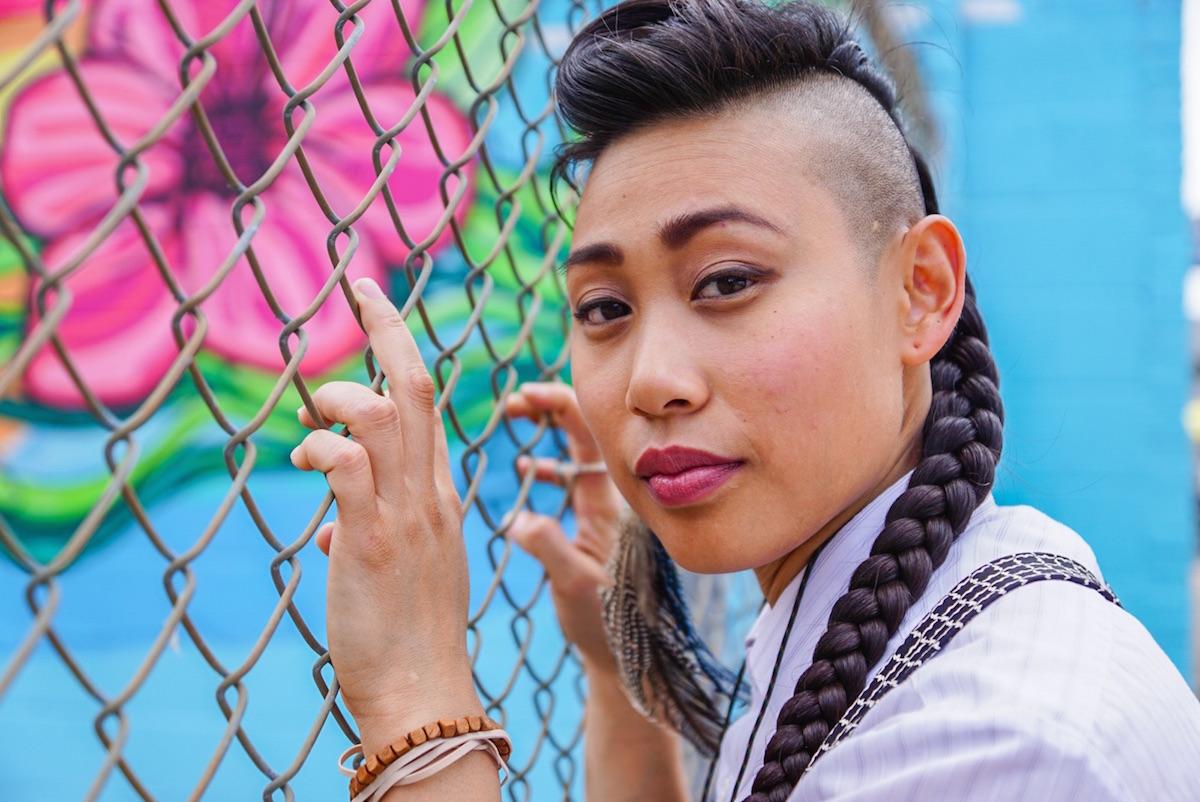
“Authenticity is so hard to come by these days since everybody wants to be, act and look like everyone else. Sometimes depending on the situations, I’ve held my silence and bit my tongue to save face, avoid conflict or danger. Fear can be a paralyzing and a daunting load to carry around.” – Joss, © Rachael Zimmerman 2016 // Inside The Black Triangle
Two years ago, when the project began, she did not imagine that it would evolve into what it has today: a vibrant, worldwide community in which queer women support each other and find inspiration through her beautiful portraits and the vulnerable and honest words that her subjects share to go along with the images.
“Inside the Black Triangle was created with the intention to share the struggles, joy, heartbreak, confusion and diverse experiences of queer women living in a heteronormative world,” Rachael said, sharing the mission statement behind her project. “Sharing stories leads to relatability, compassion and hopefully acceptance. Not only is empathy necessary outside the LGBTQ community, but now more than ever, equality is needed within the community. Acceptance and equality starts from within.”
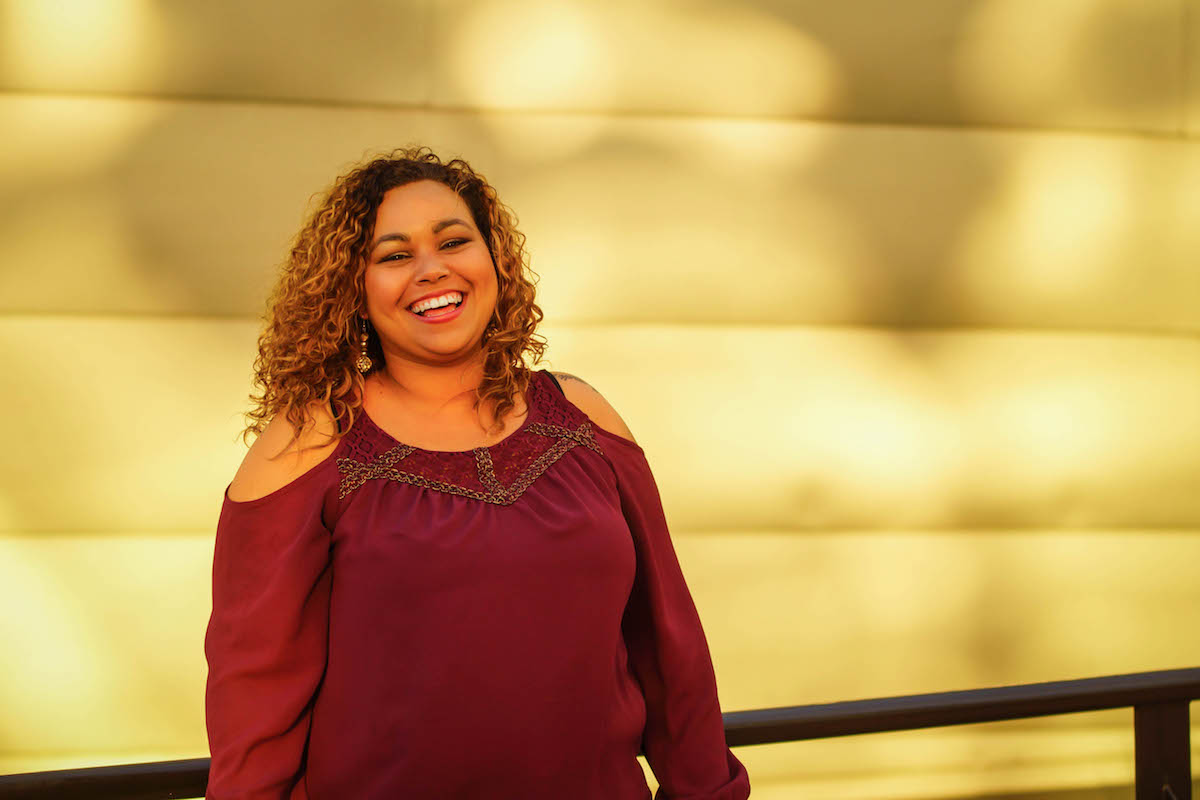
“It didn’t hit me that I was different until 6th grade. I met a beautiful, unforgettable girl on the bus and the undeniable connection we made scared the shit out of me. It broke me when she died; I slept with her jacket on for months. For a while after that I found myself stuck in a place of confusion. I mean, I didn’t just have feelings aimed toward girls. I loved Justin Timberlake and thought the boy that neighbored my seat in class was hot. What did all of these mixed emotions mean? I thought I hid it well but my mom was the first to call me on it. She gave me assurance that it was okay to be myself sexually; it was never her I was worried about, though, it was strictly society. Society, with their mess of labels. Society, making it difficult to figure out where I truly ‘belonged’. It wasn’t until I started a new life out of my comfort zone far away from home that I truly realized sexuality is not about belonging, but more importantly self discovery and self love. I’ve embraced it, and I love being a part of the LGBTQ community. Over the years I’ve been with men and women of all sorts, and when I had a lengthy relationship with a transgender person, I felt like I truly came into my own. However, the society that has always been near, and breathing down my back so to speak, has not changed. I’ve been continuously harassed and deemed ‘too pretty to be gay’, along with being questioned and drilled on my sex life. I want more than anything to break the stigmas. Society will probably never change, but the way people perceive themselves should never have to be compromised and that is what can be changed.” – Alex, ©Rachael Zimmerman 2016 // Inside The Black Triangle
Looking back on how the photo series began, Rachael said that when she was starting out she was just hoping to get some eyes on her photographs to increase awareness of her mission. Now, the series is an inclusive space to be “raw, authentic, and honest.” Rachael hopes the series and the community that has formed around it can act as ways to better the queer community and hold one another accountable. She describes some of her own personal observations about the ways in which the queer community has room to improve, including the fact that many of us still seem to prioritize masculinity, play into harmful stereotypes, and segregate based on race and nationality. “I’m so grateful for the women who courageously share their stories,” Rachael said of the subjects she has photographed for Inside The Black Triangle. “Strength is often found through vulnerability.”
When Rachael has photographed 100 women, she plans to put together a coffee table style book. Her hope is for the book to be circulated amongst friends, for it to spark conversation, and maybe one day in the future used on university campuses as a supplemental text. Rachael has also recently launched an apparel line to go along with the project, and Inside The Black Triangle is currently selling limited edition Pride t-shirts. All profits go directly back into the project.
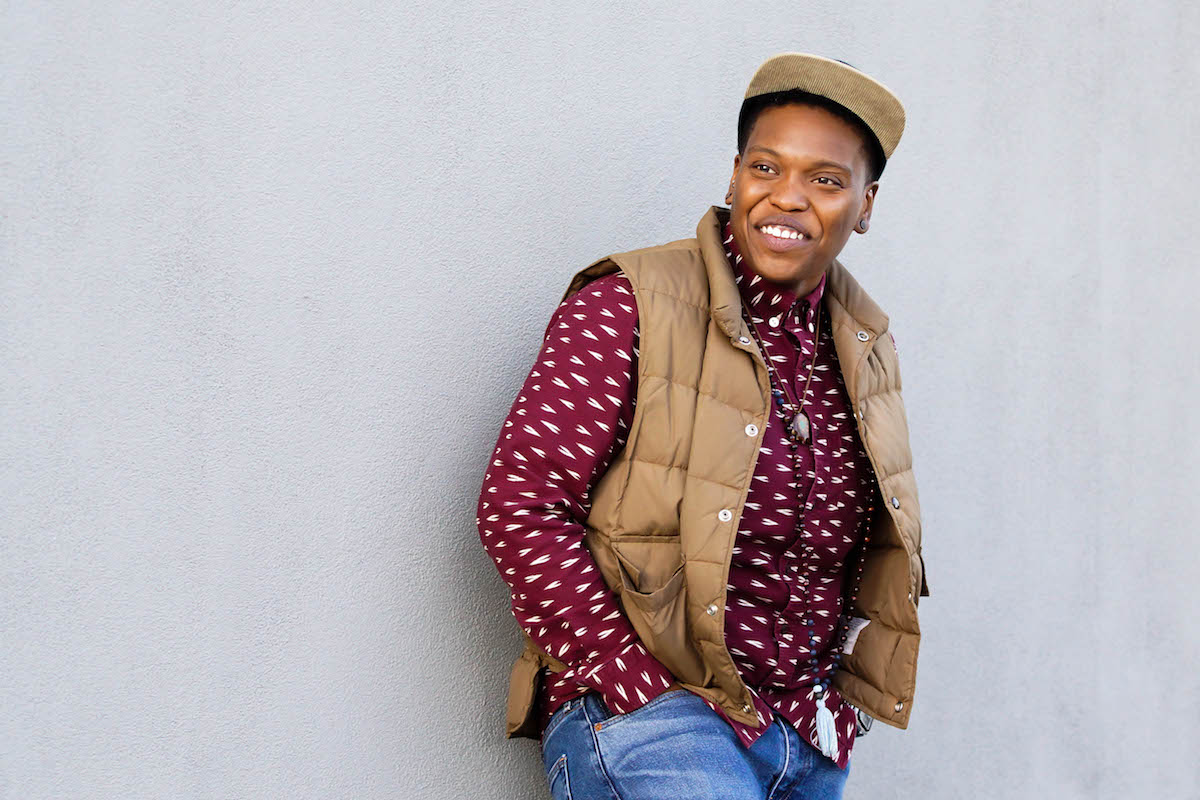
“Growing up in a small mountain town in Georgia, I had to deal with a lot of stereotyping. Being a black, lesbian woman in the south wasn’t as easy as snapping my fingers and saying this is who I am. I’ve always known my mom to be a lesbian and many people labeled me as one by default. The fact that I was athletic and very involved with sports did not help the stereotyping either. So, I spent most of my young adulthood internalizing my emotions—due to the fact that I felt people had it all wrong. If I were a lesbian, it wasn’t because my mom was or because I liked sports—it was because that was who I was. I deviated a lot from ‘the natural progression’ of coming in to my own. I had a wonderful boyfriend in high school. I still find men very attractive, but I feel I made myself want or need to like men. I felt I would be accepted if I did this…” – Ikeah, ©Rachael Zimmerman 2017 // Inside The Black Triangle
If all of this sounds so good to you and you’re like “wow, I really wish I could meet Rachael and learn more about you’d like to learn more about Inside The Black Triangle and maybe even pose for a portrait and also I live in Denver, CO” well my friend, you are in luck! Rachael will have a booth at Denver Pride, sponsored by Scissr the app, and will be shooting a Mini Pride Series for Inside The Black Triangle. She is hosting an Autostraddle Meet-Up on June 16 at 7:15pm, at her Pride booth, where there will be an interactive art activity! Learn more about her meet-up here, and if you go, let us know how it is in the comments!
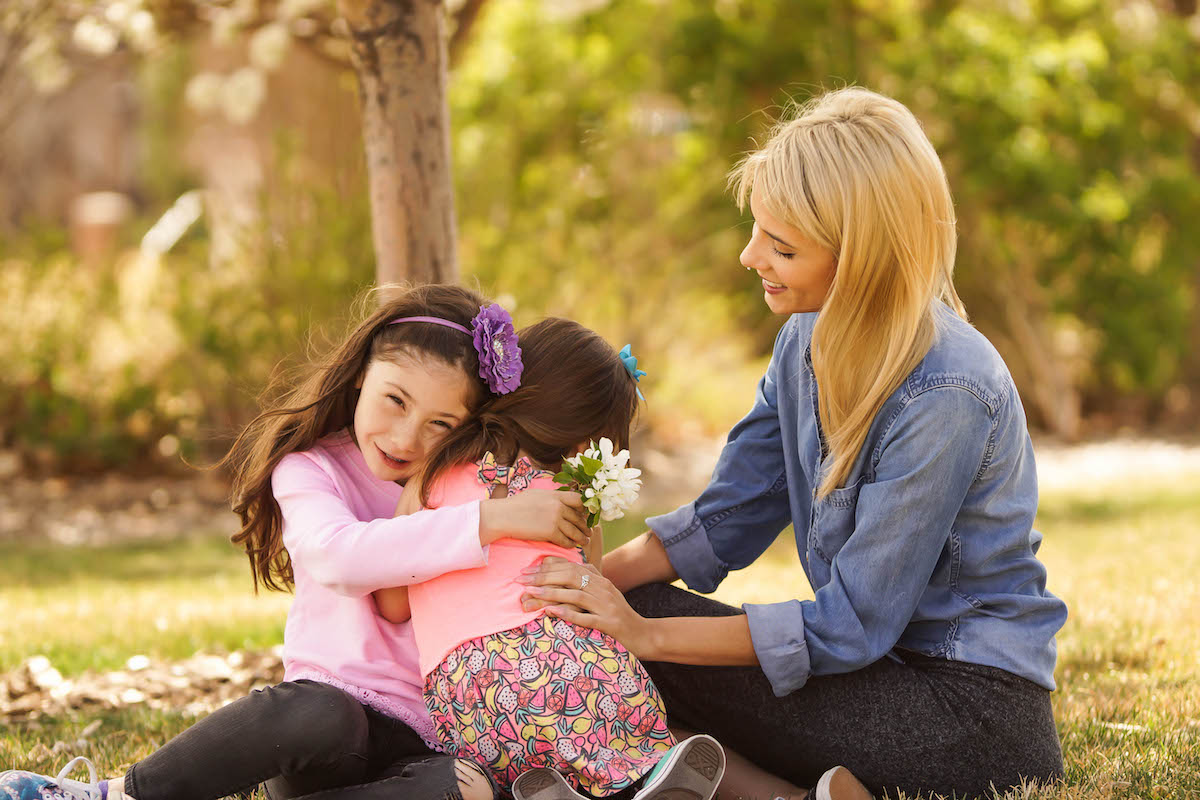
“It hurts knowing I denied so much of myself for so long. Finding yourself later in life is difficult, especially when you’ve lived as a heterosexual woman with children for nearly a decade. There is an internal uprooting and finding your place is a daunting task. Family assumed it to be a phase, as though I’m suffering from a temporary neurosis of sorts. I’ve had male acquaintances deny my sexuality for me only to promptly shower me with their grossly sexualized concept of lesbianism. My female friends wanted to make out with me when they were drunk, because all lesbians are sex fiends…” – Tasha, ©Rachael Zimmerman 2017 // Inside The Black Triangle
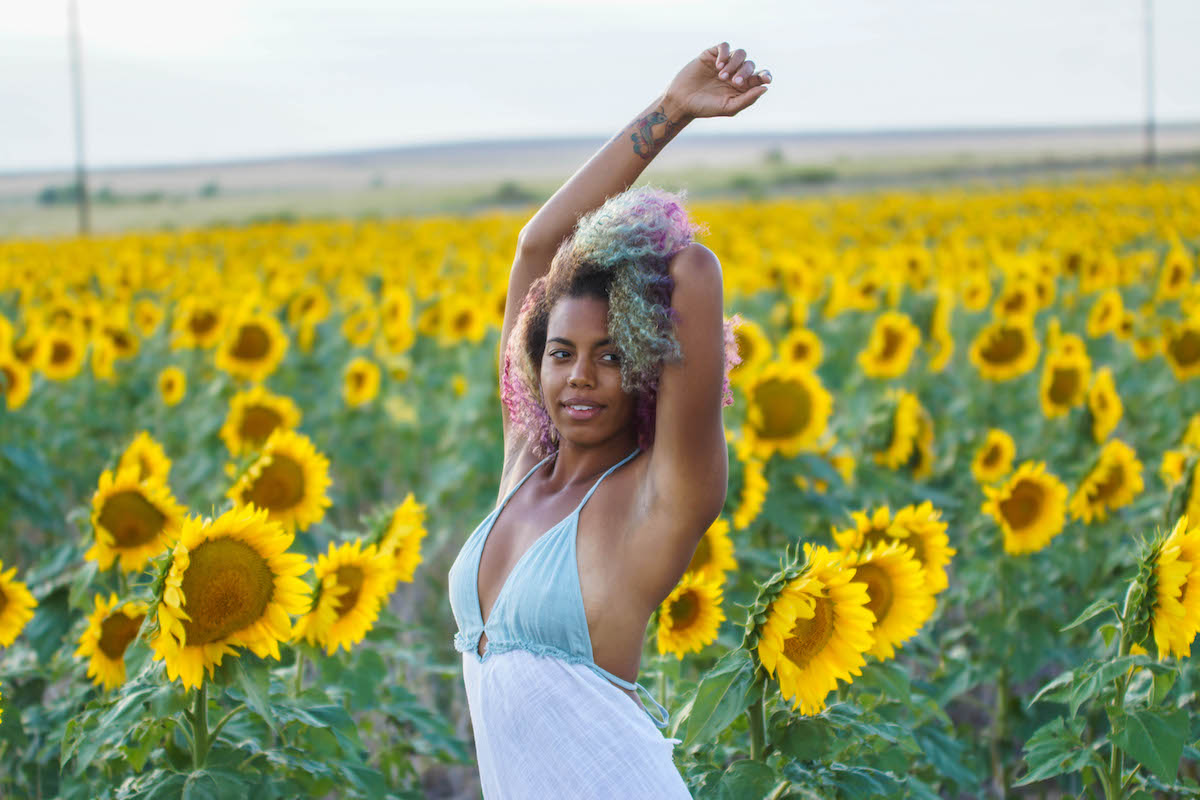
We were best friends, and we still are. It was easy to be in a relationship for so long because we get along so well and love each other so much. I think I had no idea that my attraction to and feelings for women were so inherently a part of me. Every experience that’s led me to now has been extremely valuable and important. But I do wish that my personal journey of introspection and self-love didn’t have to cause anyone else pain. It’s hard not to feel guilty and I work on forgiving myself everyday. Because choosing to love myself and live my highest truth has been indescribably beautiful, and completely worth all of it.”- Taylor, ©Rachael Zimmerman 2017 // Inside The Black Triangle
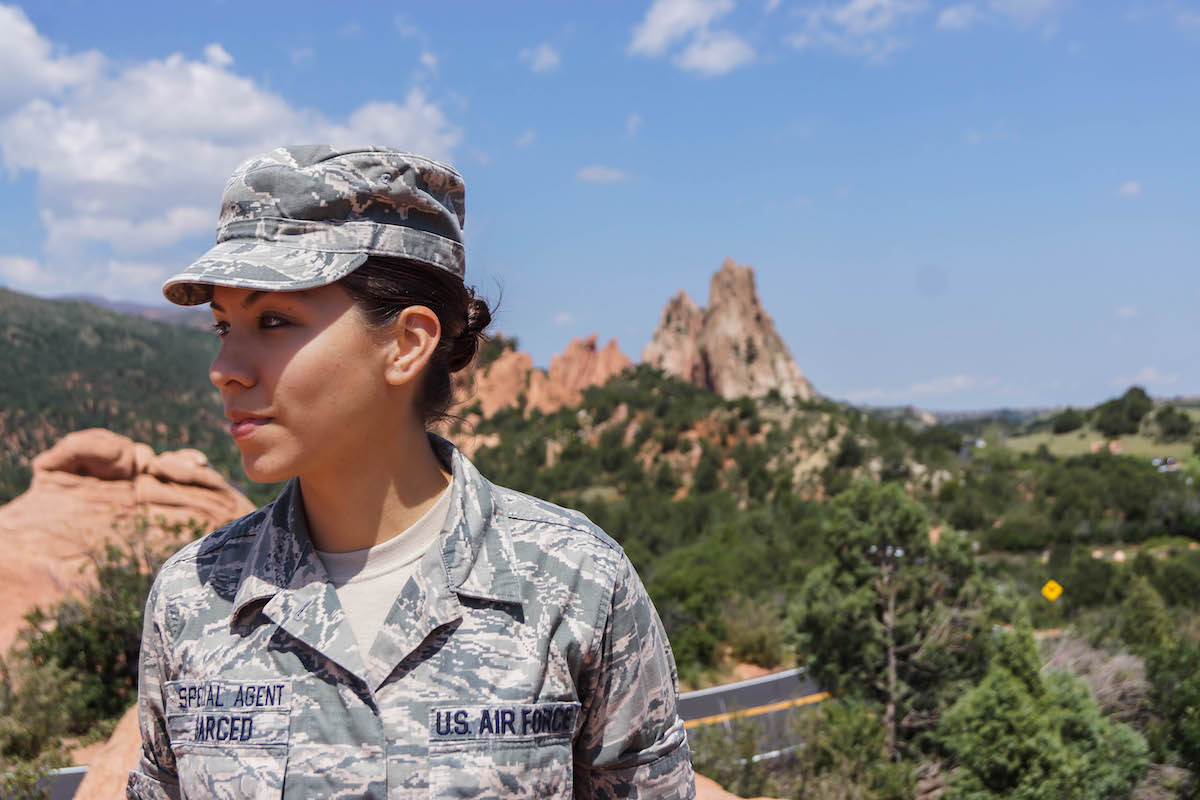
“I entered Active Duty in 2012 and realized it was not as different of a workplace as I had imagined. To this day I have not faced any adversity about my sexual orientation. Those who have been in the service longer always say “it’s a new Air Force” because of the changes that have taken place, and I am proud to be in the progressive side of this “new Air Force.” That being said, I cannot say if I would have the same experience if I were not feminine, or if I were trans. However, I have faith that this progressive “new Air Force” and military will create a culture where no one in the LGBTQIA family has to face adversity.” – Ali, ©Rachael Zimmerman 2017 // Inside The Black Triangle
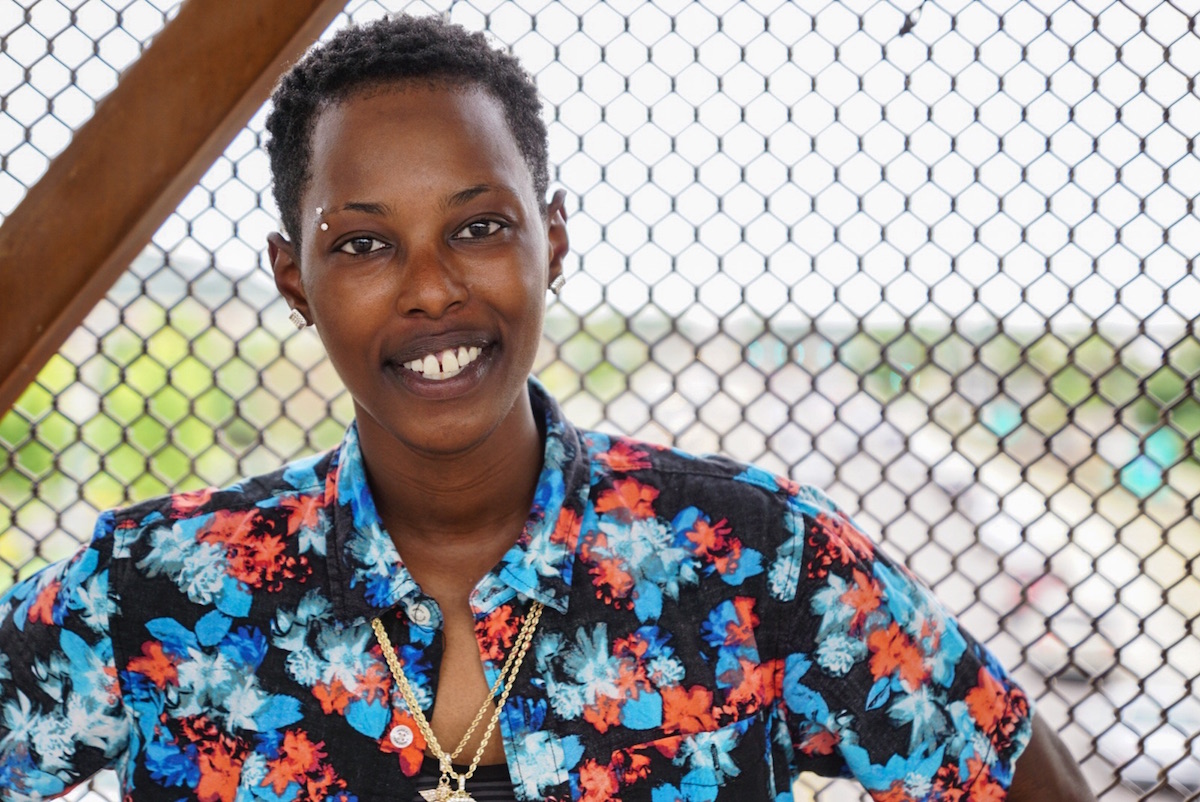
“I’ve been out in the lesbian community since the age of 16. I’m constantly learning and progressing as a lesbian stud. Currently I’m in school, studying welding. Most welders are men, but the males at school treat me equally even though I’m a lesbian. When people see me I don’t want them to just see me as a gay, lesbian stud, I would just like them to see me as another person. As time moves forward the community becomes stronger. My motto I live by is ‘Love others how you would want to be loved we all are God’s people!’.” – DeeLo, © Rachael Zimmerman 2016 // Inside The Black Triangle
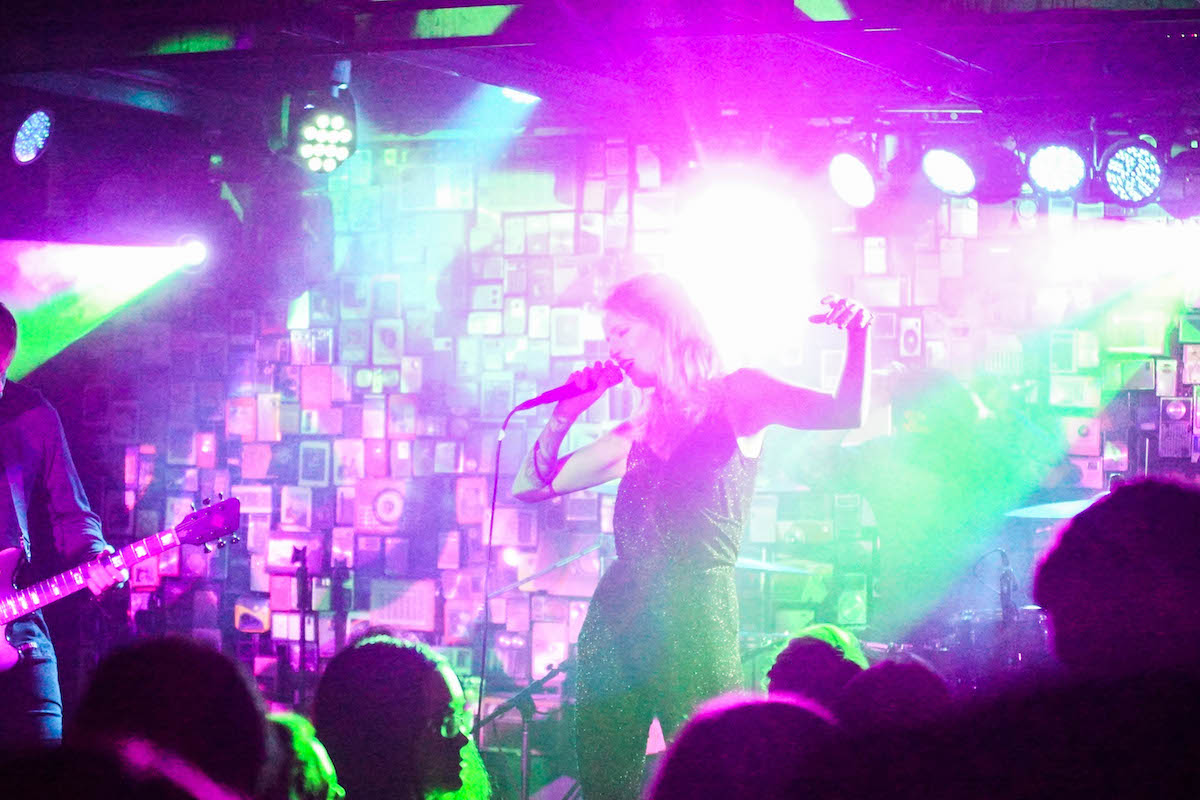
“I’ve always used songwriting to hide behind the things I really want to say to someone that I’m too afraid to say in conversation. ‘Unspoken’ is a song I wrote about falling into feelings with my best friend. We have always had this unspoken connection between us but I think both of us were too scared to acknowledge it…” – Emilie, ©Rachael Zimmerman 2018 // Inside The Black Triangle
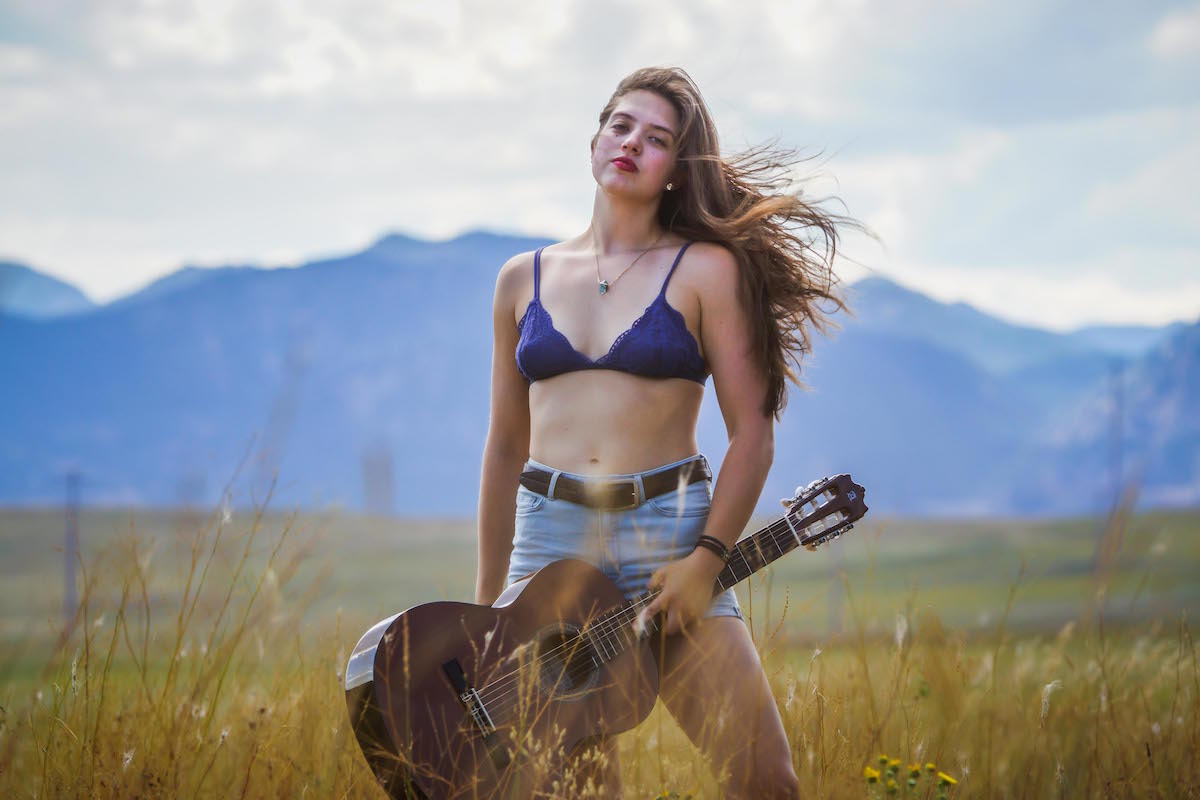
“As a singer/songwriter, many of my songs are about my romantic experiences with women. Music is an outlet for me to articulate and express feelings that make me feel vulnerable- things I find hard to put into words otherwise.” – Lena, © Rachael Zimmerman 2016 // Inside The Black Triangle



Shout out to my fellow Denver folx!! I will be the one with the huge trans pride mohawk, come say hi <3
I may not be able to make it down from Boulder, but I’ll be taking a look at my options since I’d love to meet some Denver/Boulder Straddlers.
Wow this is so cool! Wish I could go to Denver Pride. Will there be an update (with photos) of it? Is there an IG account I can follow for her? Also wouldn’t mind more info on the app sponsoring them!!
This is very cool thank you for sharing this!